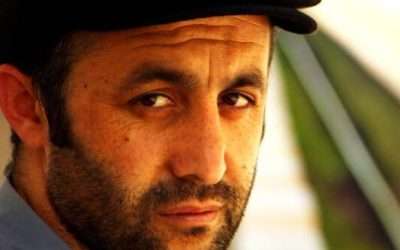Turks in North America

The Ottoman Empire ruled the area of modern Turkey from 1299 to 1923. The Allies defeated the Ottoman Empire at the end of World War I. As a result, the Republic of Turkey was established in 1923. Ethnic Turks originate from modern-day Turkey and include ethnic Turkish-speaking Turks from the areas that the Ottoman Empire occupied.
Turkey’s geographic location provides an excellent opportunity to influence both Europe and the Middle East. Turkey, likewise, is influenced by its surrounding regions. The influence reveals their diversity of cultural norms, ideology, and religious practices. The western part of Turkey has more Western influence. In comparison, the central and eastern regions have maintained many traditional customs.
Conservatively, there are between 290,000 and 350,000 Turks in the North American diaspora. There were two waves of migration. The first took place before World War I, with many of the early immigrants being mostly uneducated men who worked as general laborers. The United States limited Turkish immigration to only 100 people per year from 1925-1965. The second significant wave of Turkish immigrants arrived as a steady stream between 1965 and the present day. The later immigrants are typically well-educated professionals. The primary motivation of many Turks for immigrating to North America was economic or educational opportunities. Today, Turks can be found in every state in the United States but can be located most profoundly in Metro New York, Washington DC, and San Francisco. The largest population of Turks in Canada are found in Toronto and Montreal.
Religious Life
Modern-day Turkey sits in the heritage of the Ottoman Empire, which was inspired and sustained by Islam. According to the Turkish government, 99.8% of Turks identify as Muslim. Officially, however, Turkey has a secular constitution with no official religion. Most Turkish Americans are Sunni Muslims and thus an unreached people group. They believe that the community as a whole is the guardian and guarantor of Islamic law. This law, Shari’a, is based on four sources, which in descending order of importance are: the Koran, the examples and teachings of the prophet Mohammed, communal consensus on Islamic principles and practices, and reasoning by analogy.
As a secular but religiously devout state, religious preferences often follow political allegiances. The Gülen movement is a US-based, Turkish-influenced, umbrella organization that promotes interfaith dialogue, humanitarian aid, and charter school education. Turkey, however, views the Gülen movement as a terrorist organization. President Erdoğan said Gülen attempted to overthrow the Turkish government through a coup in 2016. Because of this political background, Turks will choose to worship at mosques that affiliate with their political bias. If a Turkish mosque that aligns politically is not present in their city, they will often attend predominately Arab or Pakistani mosques.
These are the Turkish communities in North America most in need of gospel witness
| People Group | Metropolitan Area | Population Size | Concentrated Area | Priority Score |
|---|---|---|---|---|
| Afghan | Houston | 9,850 | Gulfton | 48 |
| Afghan | Los Angeles | 16,719 | Irvine | 57 |
| Afghan | Montreal | 10,805 | Saint-Martin (Laval) | 59 |
| Afghan | New York | 9,871 | Flushing (Queens) | 49 |
| Afghan | Sacramento | 21,673 | Elk Grove | 69 |
| Afghan | San Diego | 7,189 | El Cajon | 58 |
| Afghan | San Francisco | 32,142 | Fremont | 69 |
| Afghan | Seattle | 6,994 | Kent | 54 |
| Afghan | Toronto | 43,075 | Scarborough | 57 |
| Afghan | Vancouver | 7,980 | New Westminster | 51 |
| Afghan | Washington D.C. | 33,236 | Springfield | 73 |
| Afghan Hindu/Sikh | New York | 6,000 | Hicksville (Long Island) | 86 |
| Albanian Muslim | Boston | 15,903 | Revere | 53 |
| Albanian Muslim | Chicago | 11,230 | Berkeley/Elmhurst | 49 |
| Albanian Muslim | Detroit | 19,949 | Sterling Heights | 55 |
| Albanian Muslim | New York | 48,123 | Pelham Parkway (Bronx) | 65 |
| Albanian Muslim | Philadelphia | 6,857 | Northeast | 35 |
| Algerian Arab | Montreal | 59,585 | Little Maghreb | 71 |
| Bambara | New York | 5,000 | Harlem | 69 |
| Bangladeshi | Atlanta | 5,839 | Doraville | 46 |
| Bangladeshi | Dallas Fort Worth | 6,355 | Irving | 47 |
| Bangladeshi | Detroit | 11,087 | Hamtramck | 44 |
| Bangladeshi | Los Angeles | 7,362 | Little Bangladesh | 46 |
| Bangladeshi | Montreal | 10,675 | Parc Extension | 48 |
| Bangladeshi | New York | 84,099 | Jamaica (Queens) | 41 |
| Bangladeshi | Philadelphia | 7,295 | Hatfield | 47 |
| Bangladeshi | Toronto | 36,670 | Danforth Village | 47 |
| Bangladeshi | Washington D.C. | 11,798 | York Town (Arlington) | 48 |
| Belzer Jewish | New York | 12,518 | 86 | |
| Bobover Jewish | New York | 23,509 | 90 | |
| Bosniak | Atlanta | 12,000 | Lawrenceville | 61 |
| Bosniak | Boston | 8,000 | Revere | 59 |
| Bosniak | Bowling Green | 5,000 | Morgantown Road | 60 |
| Bosniak | Chicago | 60,000 | Northside | 81 |
| Bosniak | Des Moines | 10,000 | Merle Hay | 63 |
| Bosniak | Detroit | 10,000 | Hamtramck | 64 |
| Bosniak | Grand Rapids | 10,000 | Kentwood | 63 |
| Bosniak | Jacksonville | 11,000 | Hogan | 65 |
| Bosniak | New York | 12,000 | Astoria (Queens) | 63 |
| Bosniak | Phoenix | 10,000 | Glendale | 64 |
| Bosniak | Seattle | 6,000 | Shoreline | 60 |
| Bosniak | St. Louis | 70,000 | Mehlville | 79 |
| Bosniak | Toronto | 7,120 | Etobicoke | 61 |
| Bosniak | Utica | 5,000 | Bleecker St. | 60 |
| Breslov Jewish | New York | 5,000 | 86 | |
| Bukharan Jewish | New York | 60,000 | 74 | |
| Chabad Lubavitch Jewish | New York | 27,103 | 91 | |
| Egyptian Arab | Boston | 5,359 | Dudley Square | 23 |
| Egyptian Arab | Chicago | 5,784 | Hickory Hills | 23 |
| Egyptian Arab | Dallas Fort Worth | 5,136 | Richardson | 33 |
| Egyptian Arab | Houston | 5,992 | Katy | 32 |
| Egyptian Arab | Los Angeles | 23,765 | Anaheim | 40 |
| Egyptian Arab | Montreal | 9,167 | Saint-Laurent | 27 |
| Egyptian Arab | New York | 56,257 | Astoria (Queens) | 46 |
| Egyptian Arab | Philadelphia | 5,249 | Center City | 33 |
| Egyptian Arab | San Francisco | 7,274 | Oakland | 27 |
| Egyptian Arab | Toronto | 11,637 | Mississauga | 42 |
| Egyptian Arab | Washington D.C. | 12,313 | Lanier Heights | 25 |
| Fouta Tooro | Cincinnati | 5,000 | Lockland | 75 |
| Fouta Tooro | New York | 7,600 | Bed-Stuy (Brooklyn) | 78 |
| Fulbe Futa | New York | 5,000 | Morrisania (Bronx | 77 |
| Gerer Jewish | New York | 8,791 | 84 | |
| Gorsky-Kavkazi Jewish | New York | 10,000 | 89 | |
| Gujarati | Atlanta | 26,019 | Big Creek | 52 |
| Gujarati | Boston | 16,736 | Town of Acton | 59 |
| Gujarati | Calgary | 6,500 | Horizon | 52 |
| Gujarati | Charlotte | 7,465 | Mallard Creek | 46 |
| Gujarati | Chicago | 53,444 | Georgetown | 44 |
| Gujarati | Dallas Fort Worth | 19,822 | Plano | 46 |
| Gujarati | Detroit | 9,457 | Farmington | 54 |
| Gujarati | Edmonton | 6,730 | Strathcona Industrial Park | 52 |
| Gujarati | Houston | 25,456 | Sugar Land | 61 |
| Gujarati | Los Angeles | 25,666 | Woodbury | 44 |
| Gujarati | Miami | 5,762 | Plantation | 53 |
| Gujarati | Montreal | 6,970 | Dollard-Des Ormeaux | 55 |
| Gujarati | Orlando | 7,603 | Willamsburg | 52 |
| Gujarati | New York | 125,454 | Edison (NJ) | 70 |
| Gujarati | Philadelphia | 36,953 | Hatfield | 43 |
| Gujarati | Raleigh | 8,207 | Shiloh | 45 |
| Gujarati | San Francisco | 29,547 | Fremont | 52 |
| Gujarati | Tampa | 6,001 | Brandon | 51 |
| Gujarati | Toronto | 70,490 | Brampton | 61 |
| Gujarati | Vancouver | 7,075 | South Vancouver | 58 |
| Gujarati | Washington D.C. | 21,491 | Calverton | 60 |
| Indian Hindi | Atlanta | 40,586 | Big Creek | 36 |
| Indian Hindi | Austin | 14,774 | Walsh Creek | 47 |
| Indian Hindi | Boston | 36,888 | Town of Acton | 55 |
| Indian Hindi | Calgary | 20,232 | Castleridge | 37 |
| Indian Hindi | Charlotte | 11,890 | Mecklenburg | 41 |
| Indian Hindi | Chicago | 50,852 | West Ridge "Little India" | 41 |
| Indian Hindi | Cincinnati | 7,450 | Clifton Heights | 47 |
| Indian Hindi | Cleveland | 5,397 | Glenwillow | 48 |
| Indian Hindi | Columbus, OH | 11,924 | Polaris | 36 |
| Indian Hindi | Dallas Fort Worth | 54,777 | Frisco | 32 |
| Indian Hindi | Denver | 7,422 | Sedalia | 52 |
| Indian Hindi | Detroit | 17,706 | Troy | 54 |
| Indian Hindi | Edmonton | 18,855 | SE Edmonton | 49 |
| Indian Hindi | Hartford | 9,534 | Rocky Hill | 49 |
| Indian Hindi | Houston | 37,843 | Sugar Land | 36 |
| Indian Hindi | Indianapolis | 6,429 | Wayne Township | 51 |
| Indian Hindi | Kansas City | 5,455 | Overland Park | 51 |
| Indian Hindi | Kitchener | 8,593 | West Mount | 36 |
| Indian Hindi | Los Angeles | 59,692 | Artesia | 35 |
| Indian Hindi | Miami | 12,747 | Plantation | 55 |
| Indian Hindi | Twin Cities | 7,900 | Edina | 50 |
| Indian Hindi | Montreal | 15,417 | Parc Extension | 56 |
| Indian Hindi | New York | 179,353 | Jersey City, Edison | 46 |
| Indian Hindi | Orlando | 12,718 | Williamsburg | 50 |
| Indian Hindi | Ottawa | 8,658 | Napean/Westboro | 55 |
| Indian Hindi | Philadelphia | 25,586 | King of Prussia | 56 |
| Indian Hindi | Phoenix | 16,149 | Chandler-Kirby Estates | 55 |
| Indian Hindi | Pittsburgh | 6,861 | Marshall Township | 48 |
| Indian Hindi | Portland | 7,433 | Bethany | 43 |
| Indian Hindi | Raleigh | 11,417 | Morrisville | 45 |
| Indian Hindi | Sacramento | 14,943 | Valley Hi/North Laguna | 44 |
| Indian Hindi | St.Louis | 6,101 | Ballwin | 44 |
| Indian Hindi | San Diego | 11,739 | Miramar | 49 |
| Indian Hindi | San Francisco | 153,853 | Fremont | 43 |
| Indian Hindi | Seattle | 31,712 | Bellevue | 31 |
| Indian Hindi | Tampa | 7,828 | Brandon | 52 |
| Indian Hindi | Toronto | 150,062 | Etobicoke | 45 |
| Indian Hindi | Vancouver | 49,718 | South Vancouver | 37 |
| Indian Hindi | Washington D.C. | 66,808 | Ellicott city | 47 |
| Indian Hindi | Winnipeg | 10,649 | Colony (Little India) | 53 |
| Indonesian | Los Angeles | 7,500 | San Bernardino | 29 |
| Iraqi Arab | Atlanta | 5,000 | Clarkston | 38 |
| Iraqi Arab | Austin | 7,963 | Pflugerville | 43 |
| Iraqi Arab | Chicago | 11,476 | Northbrook | 53 |
| Iraqi Arab | Dallas Fort Worth | 11,319 | Richardson | 41 |
| Iraqi Arab | Detroit | 68,626 | East Dearborn | 57 |
| Iraqi Arab | Houston | 11,914 | Mid-West | 41 |
| Iraqi Arab | Los Angeles | 5,771 | Glendale | 39 |
| Iraqi Arab | New York | 8,443 | Astoria (Queens) | 47 |
| Iraqi Arab | Phoenix | 19,457 | Northern Village | 43 |
| Iraqi Arab | San Antonio | 5,180 | Alamo Heights | 38 |
| Iraqi Arab | San Diego | 25,923 | El Cajon | 57 |
| Iraqi Arab | San Francisco | 7,913 | Modesto | 39 |
| Iraqi Arab | Toronto | 10,732 | Vaughan | 45 |
| Iraqi Arab | Washington D.C. | 9,685 | Lanier Heights | 42 |
| Israeli Sabra Jewish | Los Angeles | 18,885 | Pico Robertson & Fairfax | 60 |
| Israeli Sabra Jewish | Miami | 12,299 | Plantation | 54 |
| Israeli Sabra Jewish | New York | 36,720 | 66 | |
| Israeli Sabra Jewish | San Francisco | 9,384 | Sunnyvale | 51 |
| Israeli Sabra Jewish | Toronto | 9,750 | North York | 49 |
| Jordanian Arab | Chicago | 9,519 | Bridgeview | 40 |
| Jordanian Arab | Detroit | 7,132 | East Dearborn | 37 |
| Jordanian Arab | Los Angeles | 7,184 | Anaheim | 33 |
| Jordanian Arab | New York | 8,192 | Astoria (Queens) | 25 |
| Jula | New York | 5,000 | Harlem | 69 |
| Kabyle Berber | Montreal | 29,174 | Longue-Pointe | 49 |
| Kazakh | New York | 5,969 | Brighton Beach (Brooklyn) | 50 |
| Kurd | Dallas Fort Worth | 6,500 | South Arlington | 52 |
| Kurd | Nashville | 15,000 | Elysian Fields | 53 |
| Kurd | Toronto | 6,630 | York | 50 |
| Kyrgyz | Chicago | 15,000 | Des Plaines | 71 |
| Kyrgyz | New York | 5,000 | Brighton Beach (Brooklyn) | 68 |
| Lebanese Arab | Boston | 22,539 | Somerville | 35 |
| Lebanese Arab | Chicago | 5,681 | Bridgeview | 47 |
| Lebanese Arab | Cleveland | 6,012 | West Cleveland | 28 |
| Lebanese Arab | Dallas Fort Worth | 5,671 | Richardson | 27 |
| Lebanese Arab | Detroit | 33,099 | East Dearborn | 42 |
| Lebanese Arab | Houston | 6,622 | Mid West | 27 |
| Lebanese Arab | Los Angeles | 18,893 | Monterey Park | 35 |
| Lebanese Arab | Miami | 7,622 | Upper Eastside | 47 |
| Lebanese Arab | Montreal | 20,607 | Saint-Laurent | 39 |
| Lebanese Arab | New York | 20,901 | Paterson | 34 |
| Lebanese Arab | Ottawa | 8,855 | South Ottawa | 31 |
| Lebanese Arab | Toronto | 7,595 | Mississauga | 32 |
| Lebanese Arab | Washington D.C. | 9,239 | Woodley Park | 33 |
| Mandinka | New York | 5,000 | Highbridge (Bronx) | 81 |
| Maninka | New York | 5,000 | Concourse (Bronx) | 76 |
| Persian Jewish (Mashadi) | New York | 5,000 | 88 | |
| Moroccan Arab | Boston | 12,602 | Malden | 46 |
| Moroccan Arab | Chicago | 5,000 | Bridgeview | 44 |
| Moroccan Arab | Detroit | 6,660 | Hamtramck | 37 |
| Moroccan Arab | Los Angeles | 7,272 | Central LA-Beverly Wood | 44 |
| Moroccan Arab | Miami | 9,651 | Upper Eastside | 47 |
| Moroccan Arab | Montreal | 60,775 | Little Maghreb | 72 |
| Moroccan Arab | New York | 41,356 | Astoria (Queens) | 57 |
| Moroccan Arab | Philadelphia | 6,114 | Center City | 41 |
| Moroccan Arab | Washington D.C. | 28,279 | Brockwood | 50 |
| Moroccan Jewish | Toronto | 5,000 | North York | 83 |
| Moroccan Jewish | Montreal | 10,000 | Hampstead | 64 |
| Indo-Pak Muslims | Atlanta | 26,175 | Roswell | 40 |
| Indo-Pak Muslims | Austin | 9,336 | Northwest Austin | 39 |
| Indo-Pak Muslims | Boston | 20,368 | Cambridge | 44 |
| Indo-Pak Muslims | Calgary | 17,785 | Castleridge | 44 |
| Indo-Pak Muslims | Chicago | 57,031 | Skokie | 36 |
| Indo-Pak Muslims | Dallas Fort Worth | 43,274 | Plano | 47 |
| Indo-Pak Muslims | Detroit | 19,726 | Canton | 37 |
| Indo-Pak Muslims | Edmonton | 8,815 | Blue Quill | 36 |
| Indo-Pak Muslims | Houston | 54,218 | Sugarland | 47 |
| Indo-Pak Muslims | Kitchener | 5,735 | Cambridge | 39 |
| Indo-Pak Muslims | Los Angeles | 43,766 | Central LA | 37 |
| Indo-Pak Muslims | Miami | 12,668 | Miramar-Pimebrook Pines | 50 |
| Indo-Pak Muslims | Montreal | 10,990 | Parc Extension | 47 |
| Indo-Pak Muslims | New York | 171,011 | Midwood (Brooklyn) | 50 |
| Indo-Pak Muslims | Orlando | 7,808 | Florida Center | 48 |
| Indo-Pak Muslims | Ottawa | 10,990 | Sandy Hill | 46 |
| Indo-Pak Muslims | Philadelphia | 25,830 | Delran | 34 |
| Indo-Pak Muslims | Sacramento | 14,165 | North Oak Park | 45 |
| Indo-Pak Muslims | San Francisco | 74,602 | Diamond Heights | 45 |
| Indo-Pak Muslims | Seattle | 17,439 | Meridian | 42 |
| Indo-Pak Muslims | Toronto | 134,195 | East York | 51 |
| Indo-Pak Muslims | Washington D.C. | 68,892 | Fairfax County, Mt. Vernon | 48 |
| Indo-Pak Muslims | Vancouver | 10,495 | Burnaby and Surrey | 47 |
| Palestinian Arab | Chicago | 20,612 | Bridgeview | 42 |
| Palestinian Arab | Cleveland | 7,016 | North Olmstead | 37 |
| Palestinian Arab | Dallas Fort Worth | 6,126 | Richardson | 38 |
| Palestinian Arab | Detroit | 6,177 | Livonia | 33 |
| Palestinian Arab | Houston | 6,534 | Mid West | 35 |
| Palestinian Arab | Los Angeles | 13,593 | Anaheim | 40 |
| Palestinian Arab | New York | 16,253 | South Paterson (NJ) | 42 |
| Palestinian Arab | San Francisco | 10,855 | Soma | 42 |
| Palestinian Arab | Toronto | 10,271 | Mississauga | 41 |
| Palestinian Arab | Washington D.C. | 7,223 | Lanier Heights | 38 |
| Persian | Atlanta | 9,429 | Cobb | 10 |
| Persian | Boston | 7,746 | Malden | 29 |
| Persian | Calgary | 6,385 | Sunalta | 22 |
| Persian | Chicago | 10,193 | Lincolnwood | 23 |
| Persian | Dallas Fort Worth | 13,939 | Plano | 21 |
| Persian | Houston | 14,742 | Woodlake/Briar Meadow | 21 |
| Persian | Los Angeles | 127,713 | Tehrangeles | 43 |
| Persian | Miami | 6,085 | Doral | 32 |
| Persian | Montreal | 23,705 | Notre Dame de Grâce | 24 |
| Persian | New York | 30,520 | Great Neck (Long Island) | 33 |
| Persian | Ottawa | 8,185 | Bayshore | 32 |
| Persian | Portland | 6,672 | Pearl District | 22 |
| Persian | Philadelphia | 5,760 | Gladwyne | 20 |
| Persian | Phoenix | 5,479 | Scottsdale | 20 |
| Persian | Sacramento | 8,100 | El Dorado Hills | 17 |
| Persian | San Diego | 19,882 | La Jolla | 21 |
| Persian | San Francisco | 50,170 | San Mateo | 25 |
| Persian | Seattle | 12,287 | Bellevue | 16 |
| Persian | Toronto | 88,195 | North York | 40 |
| Persian | Vancouver | 45,815 | West Vancouver | 23 |
| Persian | Washington D.C. | 30,426 | Tysons Corner | 26 |
| Punjabi Sikh | Abbotsford | 28,235 | Clearbrook | 49 |
| Punjabi Sikh | Bakersfield, CA | 10,000 | Panama | 56 |
| Punjabi Sikh | Calgary | 56,055 | Castleridge | 61 |
| Punjabi Sikh | Chicago | 9,137 | West Ridge | 58 |
| Punjabi Sikh | Dallas Fort Worth | 12,285 | Irving | 51 |
| Punjabi Sikh | Detroit | 8,733 | Canton | 56 |
| Punjabi Sikh | Edmonton | 44,440 | Southeast Edmonton | 67 |
| Punjabi Sikh | Fresno | 8,732 | Muscatel | 47 |
| Punjabi Sikh | Hamilton | 9,590 | Grayside | 51 |
| Punjabi Sikh | Houston | 8,964 | Willowbrook | 51 |
| Punjabi Sikh | Indianapolis | 8,789 | McCordsville | 55 |
| Punjabi Sikh | Los Angeles | 32,347 | Buena Park | 59 |
| Punjabi Sikh | Montreal | 22,990 | Parc Extension | 58 |
| Punjabi Sikh | New York | 78,408 | Richmond Hill (Queens) | 69 |
| Punjabi Sikh | Philadelphia | 10,266 | Millbourne | 55 |
| Punjabi Sikh | Sacramento | 52,754 | South Sacramento | 55 |
| Punjabi Sikh | San Francisco | 100,118 | Fremont | 77 |
| Punjabi Sikh | Seattle | 24,757 | Kent | 68 |
| Punjabi Sikh | Toronto | 244,240 | Brampton | 75 |
| Punjabi Sikh | Vancouver | 222,160 | Surrey | 65 |
| Punjabi Sikh | Washington D.C. | 20,886 | Fairfax | 48 |
| Punjabi Sikh | Winnipeg | 33,345 | The Maples | 45 |
| Pupa Jewish | New York | 8,825 | 90 | |
| Sanzer Jewish | New York | 7,006 | 88 | |
| Satmar Jewish | New York | 156,744 | 99 | |
| Saudi Arab | Chicago | 5,470 | Dekalb County | 74 |
| Saudi Arab | Dallas Fort Worth | 5,457 | Denton | 74 |
| Saudi Arab | Houston | 5,420 | River Oaks | 74 |
| Saudi Arab | Los Angeles | 5,497 | Irvine | 74 |
| Saudi Arab | New York | 6,573 | Bayridge | 74 |
| Saudi Arab | Washington D.C. | 6,606 | Vienna | 74 |
| Skver Jewish | New York | 17,678 | 91 | |
| Somali | Calgary | 6,450 | Northeast Calgary | 63 |
| Somali | Columbus, OH | 45,000 | Northland | 79 |
| Somali | Edmonton | 26,580 | McCauley | 75 |
| Somali | Twin Cities | 80,000 | Cedar-Riverside | 73 |
| Somali | Nashville | 5,000 | Southeast Nashville | 61 |
| Somali | Ottawa | 25,330 | Ridgemont | 75 |
| Somali | San Diego | 15,000 | City Heights | 72 |
| Somali | Seattle | 30,000 | SeaTac | 77 |
| Somali | Toronto | 56,700 | Etobicoke | 77 |
| Somali | Vancouver | 5,048 | Newton | 60 |
| Somali Bantu | Columbus, OH | 5,000 | West side | 85 |
| Somali Bantu | Toronto | 6,000 | Etobicoke | 86 |
| Soninke | New York | 15,000 | Highbridge (Bronx) | 85 |
| Soninke | Cincinnati | 5,000 | Westwood | 76 |
| Sri Lankan Sinhalese | Los Angeles | 5,259 | Reseda | 40 |
| Sri Lankan Sinhalese | New York | 7,934 | Tompkinsville (SI) | 32 |
| Sri Lankan Sinhalese | Toronto | 16,300 | Scarborough | 38 |
| Syrian Arabs | Boston | 7,378 | Quincy | 36 |
| Syrian Arabs | Chicago | 6,902 | Rogers Park | 35 |
| Syrian Arabs | Detroit | 6,448 | East Dearborn | 36 |
| Syrian Arabs | Los Angeles | 11,474 | Anaheim | 37 |
| Syrian Arabs | Montreal | 16,248 | Ahuntsic-Cartierville | 39 |
| Syrian Arabs | New York | 18,151 | Bay Ridge (Brooklyn) | 38 |
| Syrian Jewish | New York | 75,000 | 96 | |
| Persian Jewish (Tehrani) | Los Angeles | 40,000 | 88 | |
| Persian Jewish (Tehrani) | New York | 20,000 | 86 | |
| Tamil | Atlanta | 16,591 | Cumming | 46 |
| Tamil | Austin | 10,854 | North Austin | 50 |
| Tamil | Boston | 15,024 | Shrewsbury | 43 |
| Tamil | Charlotte | 5,484 | Ballantyne | 40 |
| Tamil | Chicago | 15,122 | Napierville | 37 |
| Tamil | Dallas Fort Worth | 30,905 | Frisco | 41 |
| Tamil | Detroit | 8,077 | Troy | 36 |
| Tamil | Houston | 11,069 | Pearland | 38 |
| Tamil | Los Angeles | 14,659 | Arcadia | 37 |
| Tamil | Montreal | 14,035 | Pierrefonds - Dollard | 37 |
| Tamil | New York | 46,368 | Bridgewater | 44 |
| Tamil | Philadelphia | 10,882 | Exton | 39 |
| Tamil | Phoenix | 13,293 | Chandler | 47 |
| Tamil | Raleigh | 7,028 | Cary/Morrisville | 44 |
| Tamil | San Francisco | 56,722 | South Bay | 44 |
| Tamil | Seattle | 10,284 | Bothell | 41 |
| Tamil | Twin Cities | 6,643 | Hopkins | 45 |
| Tamil | Washington D.C. | 22,860 | Montgomery County, MD | 42 |
| Telugu | Atlanta | 27,005 | Cumming | 38 |
| Telugu | Austin | 15,711 | Cedar Park | 44 |
| Telugu | Boston | 15,309 | Walpole | 44 |
| Telugu | Charlotte | 11,416 | Ballantyne | 44 |
| Telugu | Chicago | 23,327 | Schaumburg | 47 |
| Telugu | Columbus, OH | 9,429 | Dublin | 48 |
| Telugu | Dallas Fort Worth | 47,850 | Irving | 42 |
| Telugu | Detroit | 13,208 | Novi | 35 |
| Telugu | Houston | 16,933 | Sugarland | 36 |
| Telugu | Los Angeles | 13,952 | Irvine | 36 |
| Telugu | Montreal | 14,035 | Pierrefonds - Dollard | 53 |
| Telugu | New York | 59,876 | South Brunswick, NJ | 38 |
| Telugu | Philadelphia | 16,397 | Exton | 35 |
| Telugu | Phoenix | 8,599 | Chandler | 34 |
| Telugu | Raleigh | 13,771 | Morrisville | 35 |
| Telugu | San Francisco | 73,916 | Sunnyvale | 46 |
| Telugu | St. Louis | 7,187 | Maryland Heights | 41 |
| Telugu | Seattle | 14,749 | Bellevue | 50 |
| Telugu | Tampa | 7,489 | Temple Terrace | 56 |
| Telugu | Toronto | 15,155 | Etobicoke | 33 |
| Telugu | Twin Cities | 5,669 | Eden Prairie | 43 |
| Telugu | Washington D.C. | 40,764 | Ashburn | 49 |
| Thai | Chicago | 8,240 | Albany Park | 29 |
| Thai | Dallas Fort Worth | 5,389 | City Place | 19 |
| Thai | Las Vegas | 5,480 | Paradise | 25 |
| Thai | Los Angeles | 32,211 | East Hollywood (Thai Town) | 20 |
| Thai | New York | 12,916 | Elmhurst (Queens) | 22 |
| Thai | San Francisco | 10,497 | Civic Center | 29 |
| Thai | Seattle | 6,356 | University District | 24 |
| Thai | Washington D.C. | 10,324 | Shaw | 27 |
| Tibetan | Twin Cities | 5,000 | Northeast | 70 |
| Tibetan | New York | 13,000 | Jackson Heights (Queens) | 77 |
| Tibetan | Toronto | 8,000 | South Parkdale | 74 |
| Tunisian Arab | Montreal | 18,970 | Little Maghreb | 74 |
| Turk | Atlanta | 5,122 | Sandy Springs | 56 |
| Turk | Boston | 6,462 | North Brookline | 57 |
| Turk | Chicago | 7,361 | Mount Prospect | 56 |
| Turk | Houston | 5,324 | Memorial Park | 56 |
| Turk | Los Angeles | 11,500 | Culver City | 58 |
| Turk | Miami | 8,102 | Miami Beach | 56 |
| Turk | Montreal | 13,895 | Nouveau-Rosemont | 62 |
| Turk | New York | 41,367 | South Paterson (NJ) | 57 |
| Turk | Philadelphia | 7,179 | Riverside (NJ) | 57 |
| Turk | San Francisco | 12,810 | Sunnyvale | 59 |
| Turk | Toronto | 28,490 | Mississauga | 68 |
| Turk | Vancouver | 6,305 | Richmond | 56 |
| Turk | Washington D.C. | 12,918 | Fairfax | 59 |
| Uyghur | Washington D.C. | 5,000 | Fairfax County | 65 |
| Uzbek | New York | 32,999 | Brighton Beach (Brooklyn) | 37 |
| Vizhnitz Jewish | New York | 18,382 | 90 | |
| Wolof | New York | 20,000 | Harlem | 81 |
| Yemeni Arab | Detroit | 25,000 | Hamtramck | 72 |
| Yemeni Arab | New York | 20,000 | Bay Ridge (Brooklyn) | 72 |
| Yemeni Arab | San Francisco | 10,000 | Oakland | 62 |
| Yeshivish Jewish | Chicago | 5,894 | West Rogers Park | 68 |
| Yeshivish Jewish | Los Angeles | 13,600 | Hancock Park | 74 |
| Yeshivish Jewish | Miami | 10,726 | North Miami Beach | 72 |
| Yeshivish Jewish | New York | 120,000 | 91 | |
| Yeshivish Jewish | Toronto | 16,000 | York | 75 |
| Yeshivish Jewish | Washington D.C. | 9,921 | Glen (Baltimore) | 70 |
| Figures for matrix score formula (don't delete) |

















